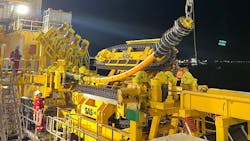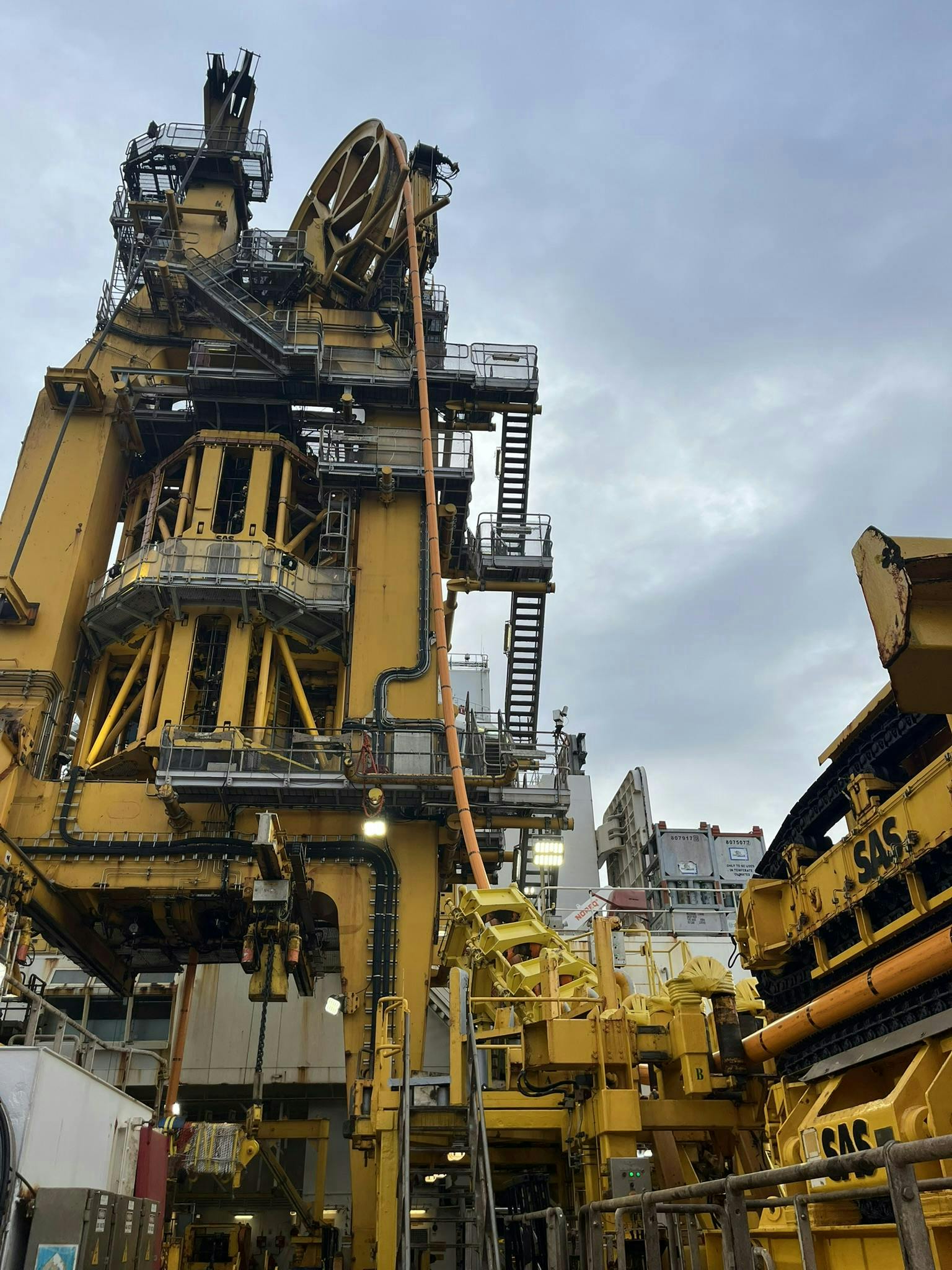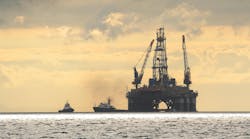Thermoplastic composite pipe combats stress corrosion cracking offshore Brazil
Key Highlights
- Brazil's presalt offshore fields face challenges from stress corrosion cracking in steel pipelines.
- Strohm's thermoplastic composite pipes (TCP) are inert to CO2 and H2S, offering a corrosion-resistant alternative suitable for deepwater applications.
- A stepwise qualification approach, supported by Shell, Petrobras and industry standards, accelerates TCP adoption in Brazil's complex offshore environment.
- Extensive testing included offshore field trials at 1,500 m water depth.
By Renato Bastos and Ramon Rojas, Strohm
In 2017, Brazil’s National Petroleum Agency (ANP) issued a failure-mode alert after detecting stress corrosion cracking in the tensile armor wires of flexible subsea pipes operating in high-pressure, CO2-rich environments in the region’s presalt basins. This phenomenon can cause the unexpected and catastrophic failure of a flexible pipeline, leading to production losses and environmental damage.
To mitigate this issue, the major operators in the country pursued a definitive solution and identified Strohm’s thermoplastic composite pipe (TCP) as a viable alternative to steel and conventional flexible pipes, as the material is inert to stress corrosion cracking from CO2/H2S exposure due to its fully thermoplastic structure.
To accelerate adoption in Brazil, TCP manufacturer Strohm agreed to a staircase qualification approach for its technology. Under this plan, successive TCP products are qualified step by step, each time extending the operating conditions such as water depth, pressure and temperature to match post‑salt and, ultimately, presalt requirements.
Step 1: Shell invests in development campaign, testing program
Shell Brasil supported this approach and, as a result, the two companies partnered to proceed with the first step and execute a rigorous program aimed at applications typical of the region’s post-salt deepwater fields. Using R&D investment funds under ANP regulations, Shell invested in a comprehensive development campaign that included the in-country execution of almost 40 tests on a 6‑inch glass fiber (EGF‑PE) pipe, used for water injection. The results of this extensive testing program proved Strohm’s capabilities to accurately predict the pipelines’ behavior.
Following this program, DNV issued a Statement of Qualified Technology for the company’s 6-inch glass fiber EGF-PE pipe, as per the DNV-ST-F119 standard, for its use as a flowline or jumper in deep waters.
Step 2: Partners Petrobras and Shell qualify, test TCP
This qualification led to the next step in the staircase approach, a joint industry project (JIP) with Petrobras and Shell building upon the earlier work performed in the country. As part of the JIP, the companies are qualifying and testing TCP to make it fully field proven and commercially available for one of the most onerous presalt conditions. The program will manufacture and pilot the installation of an ultradeepwater flowline in the presalt province.
Strohm has worked closely with Petrobras and Shell to understand their requirements for installation, subsea configuration as well as fluids, pressures and design life requirements. The result is a technology that is insensitive to CO2 and H2S and also has a low-carbon footprint, as it is spoolable and prepared in long lengths that can be installed with existing vessels.
Earlier this year, Strohm successfully completed the first offshore field trials in partnership with Petrobras for its TCP design in the post-salt Campos Basin offshore Brazil, at water depths of about 1,500 m. TCP was tested using the same methodologies Petrobras employs for conventional flexible pipes, ensuring the product meets both industry standards and the unique conditions of the regional market.
Typically, flexible pipes in Brazil are installed using the so-called vertical lay system. To enable quick adoption of TCP, being able to install the pipe without having to implement any change to installation equipment and vessels, is a major advantage.
During the field trials, the pipe’s robustness and ease of installation were assessed, including crushing and deep immersion performance tests, as well as subsea first and second-end vertical connection tests. As part of the process, the pipe was installed in a catenary configuration in which it was kept for 24 hours to assess its behavior under normal operational conditions.
The tested pipe is suitable for post-salt services, and the test results provided valuable learnings that will support the technology’s qualification for presalt applications as well. Since TCP is resistant to stress corrosion cracking—one of the major challenges in the area, it shows strong potential as a definitive solution for the presalt cluster offshore Brazil.
More trials to come
The next step is for the company to conduct further field trials next year, replicating its design and testing methodology to confirm the suitability of its carbon fiber PA12 flowlines for presalt applications.
About the Author

Renato Bastos
Renato Bastos serves as vice president Brazil at Strohm, where he supports the company's developments in the Brazilian market. With more than two decades of experience in the offshore energy industry, he has led operations, commercial strategy and engineering functions across Brazil and South America. He began his career in geotechnical design before transitioning into offshore systems. He joined Strohm in 2018.

Ramón Rojas Díaz
Ramón Rojas Díaz is an engineering program manager at Strohm with extensive experience in composites and structural analysis. Since 2014, he has driven key projects at the company, including leading the TCP acceptance program in Brazil. He holds a PhD in advanced design and combines strong technical expertise with leadership in complex engineering programs.


